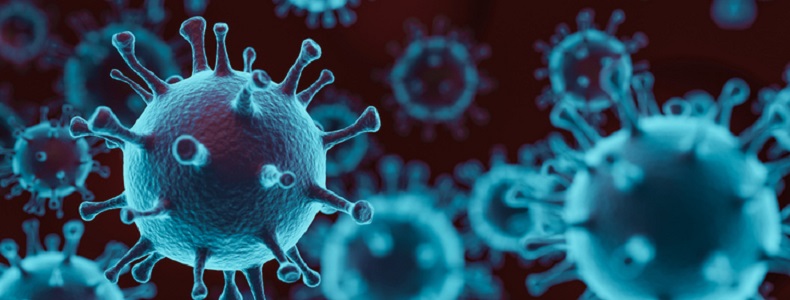 Transforming cancer research to tackle Covid-19
Transforming cancer research to tackle Covid-19
If you ever needed confirmation of how dedicated and just plain clever our cancer researchers are, it is being demonstrated by their response to coronavirus. Professor Lindy Durrant is a specialist in Immunotherapy at the University of Nottingham and has spent many years dedicated to cancer research - she is now using an adaptation of her research in an attempt to create a coronavirus vaccine, here she tells us how:
I’m Professor of Immunotherapy at the University of Nottingham, which in essence means looking at how we use the immune system to target cancer. There are two arms to the immune system; one is antibodies, which are proteins which latch onto cells and bring in other cells to kill them and the other is ‘T-cells’, which are really good at recognising cells which are infected with a virus, or are stressed, and killing them (including cancer cells).
It's all about the T-cells
When you first contract a viral infection a virus gets inside a cell and then starts replicating. Once it’s inside a cell it’s almost invisible to antibodies. The immune system then develops T-cells, which have a molecule on the surface which acts like a porthole for the T-cell to look inside a cell to see if it is infected or not. If it sees lots of viruses being made it will kill the cell, which is in effect stopping the factory making any more of the virus and is the most effective way of tacking the infection.
The immune system would then also create an antibody response, just in case in killing the infected cell something leaked out or there was a new infection, the antibodies stop any new virus from even getting into a cell. But the T-cells are always the first line of defence.
How the vaccine transforms
We have designed 11 different versions of what is essentially an adapted version of our existing DNA cancer vaccine to treat melanoma. The melanoma vaccine has proved incredibly effective at stimulating the best T-cells which are available and we thought maybe this could be adapted for Covid-19 too.
In order to get the cells to take up the DNA we have to give them a mild electric shock, known as electroporation. This works really well in cancer treatment but requires a special device, so if we were creating millions of vaccines for Covid-19 it becomes very expensive.
As a result we have been working with the School of Pharmacy to create a peptide-based technology to allow the DNA to get into cells, which only requires a standard injection. This will be good for Covid-19 treatment but we can then use the technology for cancer treatment too.
When treating melanoma if you catch it early, 80% of people will be cured. The other 20% require multiple operations, which have a level of toxicity and make you quite ill. If this vaccine proves successful it would prevent any reoccurrence, meaning there would be no advanced cancers and no requirement for the ongoing toxic therapies, which is currently the case.
Turning talk into action
My expertise is cancer, infectious disease is a field with its own nuances and problems so it wasn’t an area I had looked into before. But a vaccine is a vaccine. Whether you are stimulating the immune system against cancer or infectious disease, in simple terms it makes no difference.
So when Covid-19 first arrived my first thought was to let the people with expertise in infectious disease vaccines get on with it. But then I thought I know a lot about T-cells and most people aren’t concentrating on this aspect so it might be worth a conversation. And when I spoke to Professor Jonathan Ball and Janet Daly here at the University they got very excited!
In essence it’s a case of: “We have a vaccine, there’s a pandemic, could we help?” and then we talk to the people who know a lot more about it and between us we design it to make it effective!
Our cancer researchers like Lindy are able to carry out their work thanks to your ongoing support. See how you can
help.